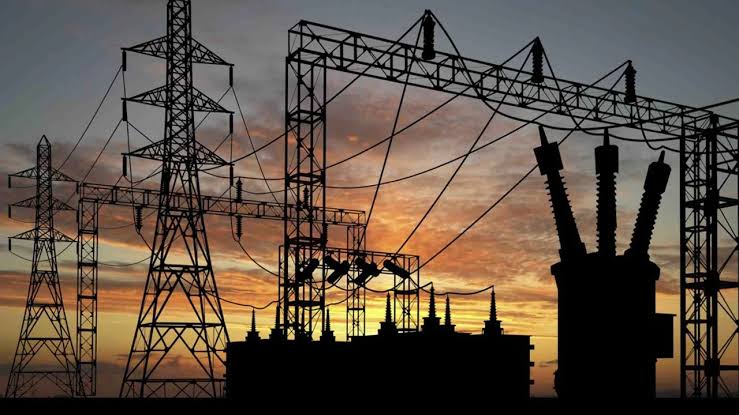In a major vote of no confidence in Nigeria’s national power grid, six federal universities, telecom giant MTN Nigeria, the Nigerian Defence Academy (NDA), and 16 other companies have obtained regulatory approval to exit the national grid, citing unreliable power supply and escalating generator costs.
Data from the Nigerian Electricity Regulatory Commission (NERC) revealed that 24 institutions and corporations secured captive power generation permits in 2024, allowing them to produce their own electricity independently.
The move highlights growing disillusionment with the national grid, which continues to suffer frequent collapses and fluctuates between a paltry 3,000 to 4,500 megawatts—far below the needs of Nigeria’s 200 million people.
Among the universities ditching the grid are the University of Abuja (3MW), University of Calabar and its Teaching Hospital (7MW), Federal University of Agriculture, Abeokuta (3MW), Michael Okpara University of Agriculture in Abia State (3MW), University of Maiduguri and its Teaching Hospital (12MW), Federal University Gashuwa, Yobe (1.5MW), and Nile University, Abuja (10MW).
University officials say the decision was necessary to guarantee uninterrupted learning, research, and clinical services.
“Stable electricity is fundamental to our operations—from student labs and hostels to data centres and surgical theatres,” one administrator noted.
MTN Nigeria, which operates an extensive telecommunications network across the country, has also embraced captive power.
The company secured permits to generate 15.94MW of electricity for its operations in Lagos alone. Industry experts say the move will help MTN ensure network uptime, avoid service disruptions, and cut back on diesel expenses.
Manufacturers and heavy industries have not been left out. Steelmaker African Steel Mills in Lagos (20MW), ceramics manufacturer West African Ceramics in Kogi (10MW), and Royal Engineered Stones (4MW) are among the firms shifting away from public power supply.
The food and beverage sector is also taking steps to become energy-independent. Nigeria Breweries Plc obtained multiple permits for facilities in Aba (5.6MW), Ibadan (7.2MW), Ama-Enugu (10.59MW), and its Aba Malting Plant (7.97MW).
Other firms making the switch include SweetCo Foods in Oyo (1.5MW), Armilo Plastics in Lagos (1.13MW), Quantum Paper in Lekki (7MW), and Psaltry International in Oyo (1.1MW).
Even Ro-Marong Nigeria Ltd in Lagos (4.4MW) and the NDA in Kaduna (2.5MW) are now generating their own electricity, signalling that the problem cuts across sectors and security concerns.
Energy experts say the mass exit of these institutions exposes the crumbling infrastructure and governance challenges in Nigeria’s power sector.
“When even the Nigerian Defence Academy no longer trusts the national grid, we’re dealing with a full-blown systemic failure,” said Yemi Adebayo, an energy governance consultant.
Adetayo Adegbenle, Executive Director of PowerUp Nigeria, warned that this growing trend could cripple the national grid by removing large commercial consumers, who typically act as “anchor tenants” for electricity distribution companies (DisCos).
“These companies help balance demand and supply. Without them, the grid is being propped up by residential users alone, which is unsustainable,” Adegbenle said.
With big players gone, the burden now falls on Band A customers—residential users promised up to 20 hours of daily power but receiving far less. In April 2024, NERC approved a Band A tariff hike to N206.80/kWh, sparking outrage among customers.
“It’s like we’re being punished for staying on the grid,” said Ifeanyi Nwosu, a Lagos-based banker. “We’re paying premium rates for unreliable supply while big companies walk away.”
Analysts say Band A customers are being used to plug the revenue gap left by departing industrial users.
“The grid was never designed to run profitably on residential customers alone,” said Aisha Mohammed, an energy researcher at the Lagos-based Center for Development Studies.
“They consume less, often default on bills, and are sometimes not even metered. The economics simply don’t add up.”
Energy stakeholders are now urging the federal government to offer incentives that could lure companies back to the grid, including reliable supply guarantees and cost-effective tariffs.
“Without strategic reforms, we risk turning captive generation into a norm for the few who can afford it—leaving millions trapped in darkness,” warned policy consultant Aisha Salami.
Do you want to share a story with us? Do you want to advertise with us? Do you need publicity for a product, service, or event? Contact us on WhatsApp +2348183319097 Email: platformtimes@gmail.com
We are committed to impactful investigative journalism for human interest and social justice. Your donation will help us tell more stories. Kindly donate any amount HERE




